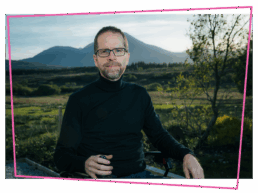


guiding principles
- I believe assessment must be reimagined as human, relational and story-rich — a process of sense-making, of getting to know you.
- I believe data are fragments of our stories — not only numbers, but also the frequencies behind and between them.
- I believe wellbeing, belonging and inclusion are the soil from which learning grows, not outcomes to be pursued after achievement.
- I believe every member of a school community has the right, without condition or compromise, to be seen, heard, known and to belong. Exceptions and contingencies are where exclusion begins.
- I believe leadership is less about having the answers, and more about holding the tensions between values and practice, aspiration and reality, individual need and collective flourishing.
- I believe the design of schools — in space, system and culture — can liberate or constrain, invite or exclude. The task is to make them sanctuaries of equity and justice for everyone within them.
from theory to practice
My work with schools is varied, but it always begins with listening. From there, it can take many forms.
- Sometimes it means opening a journey with a provocation — part story, part question, part challenge — designed to shift perspective and prepare the ground for what follows.
- Sometimes it means gathering different voices within the school, and listening together for the patterns, tensions and possibilities that shape its culture.
- Sometimes it means workshops with faculty, examining how they collect and use data, and how those choices can be infused with kindness and warmth.
- Sometimes it means working with leaders as they reflect on their values, interrogate their practice, and make decisions that hold complexity rather than collapse it.
- Sometimes it means longer partnerships, as schools evolve into communities of unconditional belonging, committed to equity in every classroom, corridor and conversation.
Whatever the form, the work is not about quick fixes or ready-made solutions. It is about creating conditions in which new ways of knowing can take root — and in which students, staff, parents and boards can make sense of who they are, together.
questions and provocations
Much of my work begins with questions.
- What if we reimagined assessment as a process of getting to know you, rather than a means of sorting or ranking?
- What if school data could be gathered and used as tools of kindness and warmth, rather than instruments of fear and harm?
- What if report cards and transcripts reflected the values we hold most dear?
- What if the wellbeing of every student could be read with the same richness and nuance as their learning?
- What if we recognised that impact, though essential, is impossible to predict — and that the things we most want to measure are, ultimately, immeasurable?
- What if we understood, like the carbon we might offset through our life choices, the imprint of our leadership decisions on wellbeing and belonging?
- What if we measured how inclusive we were by the lived experience of our least included student or member of staff?
These are not questions with easy answers. They demand new ways of knowing — holding complexity, surfacing tensions — and they invite us to listen for the stories behind the data, and the data behind the stories.
invitation
I do not arrive with ready-made answers, and I do not promise quick fixes. But I believe that when schools ask different questions — and dare to explore them with honesty and care — they create the conditions in which every member of the community can flourish.
If these provocations resonate with you, I would love to explore them together — with your students, staff, leaders, parents and board. Please get in touch if you would like to begin the conversation.